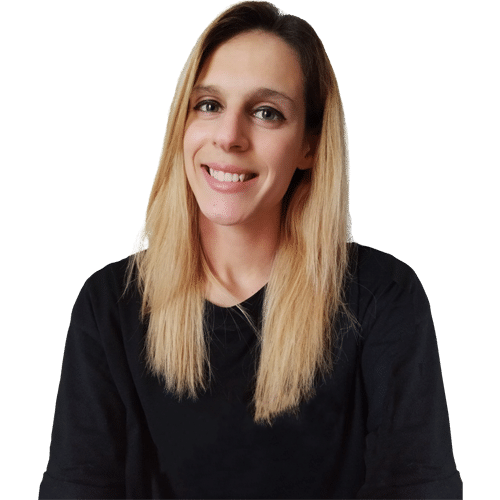Turning Strangers into Friends
Juliana Barbedo Carvalho from the Madrid office of Spencer West Spain is a multidisciplinary and international attorney with almost 20 years’ of experience in intellectual property, telecoms, media, technology, corporate, commercial and competition law. Juliana has a special interest in the rights of economic migrants and asylum seekers, and volunteers locally in support of these vulnerable groups.
Juliana was interviewed by Spencer West’s Spanish ESG Intern, Raquel Valle Sanchez
Juliana, can you tell us a bit about your background?
I was born and raised in Rio de Janeiro. Rio is in southeast Brazil and is famous for its beautiful natural setting and enthusiastic culture such as Carnival, samba, and bossa nova. However, Rio, just like Brazil, is also a city of many contrasts, where you can find luxury but also many favelas, which are very deprived areas. Because of my interest in politics and concern with these inequalities, I decided to study Law at the Rio de Janeiro State University.
During my bachelor’s degree, I did an internship with a boutique law firm and our largest client was Globo, the most important media group in Brazil. I had always been interested in intellectual property and copyright, but this internship gave me such vast experience in this field that I decided to specialize in this area. Inspired by my experiences at the law firm and with Globo, where I went to become an in-house lawyer later on, I enrolled on some courses and took a Master’s degree focused in intellectual property, corporate, and antitrust law at New York University School of Law to study the subjects in depth.
Now, I work in Madrid, as well as taking my PhD in Law at the Complutense University of Madrid.
How long have you been practicing law?
I started working as an intern with a boutique law firm during my bachelor’s degree, so I must have around 20 years’ of experience practising law. I have been combining my job with different courses in Brazil, New York, London, and Madrid. I have studied, worked, and lived in Brazil (Rio de Janeiro and Sao Paulo), New York, Barcelona, London, and Madrid. My clients live and work all around the world. Though I go to Brazil often, I am not planning to move back permanently, as I really enjoy Madrid and Spain, where you feel very welcome as a foreigner.
What can you tell us about Spanish economy?
In Spain there are many important media, telecom, and technology companies, especially within the audiovisual, animation, videogaming, and telecom industry, which is very convenient for intellectual property and copyright lawyers like me! However, the Spanish economy is mainly based on small and medium-sized companies (SMEs), many of which need to develop their digital transformation. The more that companies do digitize, the more they will need the right legal advice and support in this area, particularly with all the regulatory and policy changes around this topic in Europe.
Do you notice any communities which are left behind?
In my opinion, vulnerable immigrants, such as those seeking asylum and for economic reasons, face challenges in any country and it is no different in Spain. As an immigrant myself, I believe immigrants don’t know many of the resources they can access due to the lack of information they have about the Spanish and European Union law.
Is something done for those communities?
I volunteer with CEAR (Spanish Commission to Help Refugees), working in education for development. I take part in workshops and lectures about the right of asylum with the aim of raising awareness about the difficulties asylum seekers and refugees face, the origins and concepts of this human right, and the disinformation around the subject. These lectures are aimed at the Spanish population in general and are held in schools, universities, and reception centres, in order to encourage empathy and understanding towards these vulnerable communities.
Was there an event, or a moment in your past life, that led to you wanting to help in this way?
My parents worked as doctors in the Brazilian public health system. Their aim was to help Brazilian people as much as they could and improve our society. I remember my mother telling me many stories about their patients, not only the health issues, but all the surrounding difficulties they face due to poverty. Those stories influenced me so much that I decided help people as well, and I found that Law was another way of helping vulnerable groups.
During my bachelor’s degree I had an opportunity to provide free legal assistance to needy communities living in favelas, facing the challenges like lack of documentation and gender-based violence. I learned that empathy and respect for their rights and interest can play a major role in helping people overcome their issues.
What do you think about our current environmental situation? Are you also cutting your carbon emissions, and if so, by how much in percentage terms?
Nature has always been a very important part of my life, ever since I was a child, because in Brazil nature is an essential part of our lives. Nowadays I live near the countryside, and I like to enjoy the natural environment with my family.
To cut my carbon emissions I try to reduce my consumption in general, and to eliminate single-use plastic packaging as much as possible. I also have solar panels at home and use electric cars. I try to recycle as much as I can, and not to buy things I don’t need.
Have you set any targets for this for the future?
I would like to continue reducing my consumption of single-use plastic-packed products. This year, I want to further reduce my spending on unnecessary goods, and, of course, to help Spencer West to be an environmentally friendly company by raising awareness among partners.


